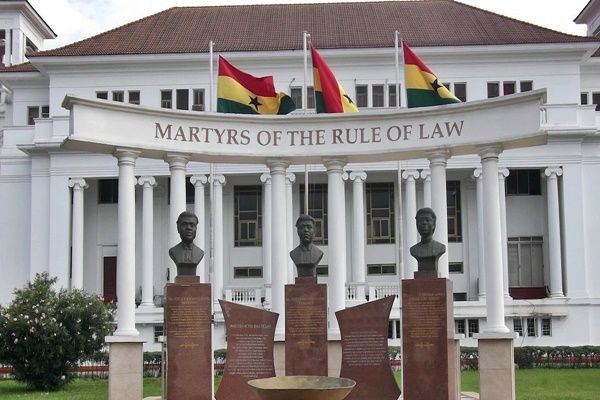The Supreme Court has held that the fact that some countries, through judicial pronouncement and legislation, have legalized homosexuality, does not mean Ghana should apply those laws, stressing that homosexuality and other forms of unnatural carnal knowledge remained a crime under the laws of Ghana.
In a judgment detailing why it upheld the law criminalizing unnatural carnal knowledge, the apex court held that it could not simply accept foreign laws which were not in tune with the values of Ghana or were at variance with the laws of the country, particularly the 1992 Constitution.
“The law’s utility thus becomes waste, if it is just transportation of alien cultural values and ideas which have no foundation at all with the peculiar social factors in our legal system” the court held.
Unnatural carnal knowledge
The court held that Section 104 (1) (b) of the Criminal Offences Act, 1960 (Act 29), which criminalised unnatural carnal knowledge does not violate the 1992 Constitution, and therefore any form of sexual intercourse which does not involve the “penetration with a penis into a woman’s vagina” remained a crime.
“Therefore, any sexual intercourse with a person or animal other than through the means of penetration with a penis into the female vagina is unnatural and criminalised under Section 104 of Act 29,” the court stated.
“Such situations include sodomy and bestiality which is carnally knowing an animal or where a person allows an animal to carnally know that person,” the court held
Unanimous decision
The court made the pronouncement after throwing out a suit by the plaintiff, Dr Prince Obiri-Korang, who wanted the court to recognise the rights of homosexuals, arguing that such people were discriminated by virtue of Section 104 (1) (b) of Act 29, and was thus unconstitutional.
Dr Obiri-Korang further argued that Section 104(1) (b) of Act 29, violated the right to privacy and liberty, as respectively provided under Article 18(2) and 14(1) of the 1992 Constitution.
The court held that although the plaintiff had made an extensive argument in support of his case, most of his arguments were based on laws of other countries, which could not be accepted and applied in Ghana.
The unanimous decision by the seven-member panel of the apex court, which declared Section 104(1) of Act 29 as constitutional and thus, upholding the 64-year-old criminalising unnatural carnal knowledge was authored by Justice Issifu Omoro Tanko Amadu.
Peer pressure
In a concurring opinion, Justice Emmanuel Yonny Kulendi held that the fact that some countries had accepted homosexuality does not mean that Ghana should do same.
“Whilst the constitutions and laws of other nations may have expressly legalized homosexuality, glorified gay marriages and by way of affirmative actions, promulgated legislation to propagate, outdoor, evangelize, preach and sell the notions of homosexuality to every fabric of those societies, Ghana as a nation, and for that matter this Court, cannot by "peer pressure" be cajoled into adopting similar stance” he stated.
(Graphic)





